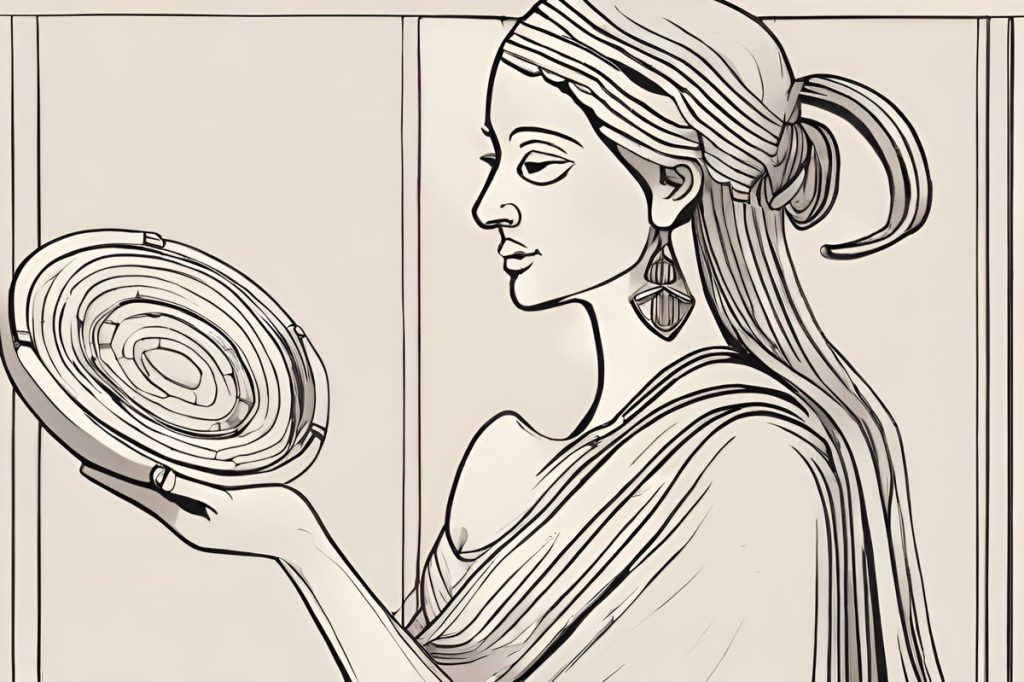The debate over stolen cultural artifacts centers on the moral question of whether victimized nations should have to pay for the return of their heritage, as seen in Cyprus’ agreement with Germany for looted ecclesiastical and prehistoric items. Tasoula Hadjitofi, a vocal advocate against such transactions, highlights the ethical concerns surrounding the repatriation of stolen art in the global sphere, emphasizing the need for adherence to contemporary ethical standards in dealing with looted artifacts.
What is the ethical debate surrounding the repatriation of stolen cultural artifacts?
The ethical debate over repatriating stolen cultural artifacts centers on whether it is morally acceptable for victimized nations to pay for the return of their heritage, particularly when it was taken under distressing circumstances. This issue was highlighted by the financial terms of Cyprus’ agreement with Germany for the return of looted ecclesiastical and prehistoric items.
A Historic Agreement with a Price
Cyprus, an island nation with a rich history dating back millennia, has recently made headlines with a groundbreaking arrangement to recover parts of its cultural heritage. On a peaceful Tuesday in June, a press release from Cyprus’ Synodal Committee announced an accord with German authorities. This agreement would return sixty ecclesiastical and prehistoric artifacts looted following the Turkish invasion in 1974. The Church of Cyprus remarked on the historic joy of the event, marking the end of a nearly thirty-year journey filled with legal battles. Yet, sources disclosed the Church, under His Eminence Porphyrios of Neapolis, agreed to a paid sum to Germany, igniting a debate on the ethics of repatriation.
The Moral Quandary of Cultural Repatriation
The transaction sparked a conversation on the morality of repaying to reclaim stolen heritage. Tasoula Hadjitofi, a Greek Cypriot cultural activist and author of “The Icon Hunter,” spoke out against the idea. She believes that asking Cypriots to pay for the return of their heritage, especially after the harrowing circumstances of its theft, is contrary to contemporary ethical standards. Hadjitofi’s own efforts as an authorized representative of the Church of Cyprus and her NGO, Walk of Truth, emphasize the diligence and adherence to procedures for the repatriation of stolen artifacts. Despite this, the financial aspect of the repatriation deal with Germany raises questions about the precedents being set for global ethical practices regarding stolen art.
Tasoula Hadjitofi’s Lifelong Battle Against Art Trafficking
The journey to this point has been long and arduous, especially for activists like Hadjitofi, who have dedicated their lives to this cause. After the invasion, she herself was displaced, becoming a refugee amidst the organized pillaging of her homeland’s treasures. Hadjitofi later spearheaded the ‘Munich Case,’ a monumental art trafficking sting operation, which unearthed a hidden cache of over 5,000 artifacts in the 1990s. Her efforts have been instrumental in recovering and repatriating stolen cultural items, but many treasures remain abroad, including significant artifacts still in Germany.
The Journey of Cyprus’ Artifacts: From Theft to Repatriation
The story of Cyprus’ stolen artifacts is a complex tapestry, involving not just the loss and recovery of cultural treasures, but the intertwined legal and ethical implications. When Aydin Dikmen, known as “The Archaeologist,” was apprehended, a wealth of Cypriot antiquities was discovered. Though a portion of these artifacts was returned, the legal battle over Dikmen’s estate and the taxes he owed on his illegal profits complicated further repatriation. The international consensus on the return of unlawfully acquired artifacts points to the necessity of restoring these items to their rightful origins, an ethos shared by many Western nations, including Germany, which has led restitution efforts for other stolen cultural properties.
The narrative of Cyprus’ cultural artifacts is one of resilience and perseverance. It underscores the broader struggle for art justice and the recognition of cultural heritage as an integral part of a nation’s identity that should not be commodified. As we mark fifty years since the invasion that scattered these artifacts, the call for their unconditional return resonates more powerfully than ever.
What is the ethical debate surrounding the repatriation of stolen cultural artifacts?
The ethical debate over repatriating stolen cultural artifacts centers on whether it is morally acceptable for victimized nations to pay for the return of their heritage, particularly when it was taken under distressing circumstances. This issue was highlighted by the financial terms of Cyprus’ agreement with Germany for the return of looted ecclesiastical and prehistoric items.
How did Cyprus recently make headlines in relation to its cultural heritage?
Cyprus recently made headlines for reaching a groundbreaking agreement with German authorities to recover sixty ecclesiastical and prehistoric artifacts looted following the Turkish invasion in 1974. While this was a joyous occasion for Cyprus after nearly thirty years of legal battles, the agreement included a financial payment to Germany, sparking a debate on the ethics of repatriation.
Who is Tasoula Hadjitofi and what role does she play in the debate over stolen cultural artifacts?
Tasoula Hadjitofi is a Greek Cypriot cultural activist and author of “The Icon Hunter” who has been a vocal advocate against the idea of victimized nations paying for the return of their stolen heritage. She believes that this practice goes against contemporary ethical standards and has dedicated her life to the repatriation of stolen artifacts through her NGO, Walk of Truth.
What is the significance of the international consensus on the return of unlawfully acquired artifacts?
The international consensus on the return of unlawfully acquired artifacts highlights the importance of restoring these items to their rightful origins. This ethos is shared by many Western nations, including Germany, which has led efforts to repatriate stolen cultural properties. The narrative of Cyprus’ cultural artifacts underscores the broader struggle for art justice and the recognition of cultural heritage as an integral part of a nation’s identity that should not be commodified.

